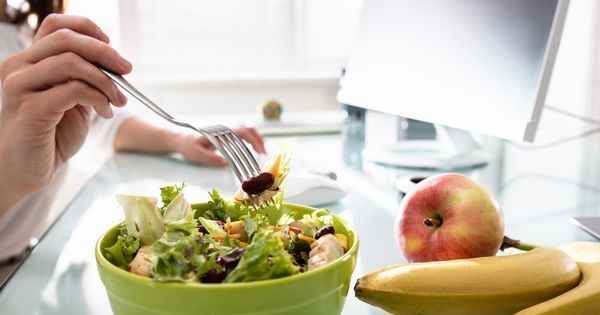Posted on 02/08/2021
3 min read
For employees who are not teleworking, the lunch break in the era of Covid-19 is available in sandwiches and other dishes taken away and eaten in the premises or even … by car, or in canteens under strict health protocol, a logistical challenge but which “contributes to morale”.
Since the start of the health crisis, company restaurants have been operating at a slower pace due to massive teleworking. Most of the major players in the sector have already announced job cuts such as Compass, Sodexo or Elior.
For those who remain open, the company protocol provides for various binding provisions to avoid contamination: traffic plans, staggered chairs, hydroalcoholic gel … The last update at the end of January adds a difficulty with a distance of 2m between two people when the mask cannot be worn, against 1m previously.
Despite this, the followers of the canteen still find “a moment of conviviality“, but also a financial gain.
In a large newspaper company which has chosen to keep the internal restaurant open “for the comfort of employees“, the Works Council indicates that on the whole the rules are well respected, with some regular reminders to order.
“It is complicated“, we recognize, however, especially highlighting the fear”that someone is contaminated“. And “it costs more“at the CSE, in particular because an additional post is dedicated to cleaning the tables, for some 100 daily covers against the usual 280 to 300. The manager of the service provider, a mid-range company, which manages about forty restaurants has more than ‘about thirty closed.
The health issue is real. At the end of January, the Director General of Labor (DGT) Pierre Ramain had mentioned “3,900 clusters investigated since the start of the health crisis“in business, listing collective catering among the modes of contamination with convivial events on the fringes of work (such as jars) or even carpooling.
While many employees do not have a canteen, a decree should soon allow them to have lunch at their workstation, which the Labor Code currently prohibits even though it is already widely practiced.
In the meantime, some go so far as to go down to the parking lot and eat in their car.
This is the case of Alain, an executive in the space sector in the Bordeaux region, who has given up all meals in the community. This fifty-something, who had the Covid in March, thus hopes to protect himself from a second contamination. He assures AFP not to suffer from this situation and slips that “until we have been touched by the disease, we cannot understand“.
The nasal pusher test
The manager of a Parisian SME in the mobility sector explains to AFP that for the company, which practices a “mix” between telework and “face-to-face”, the canteen is “essential” and “also contributes to team morale“. These” come more “than what is asked of them and” we are not going to make them eat sandwiches for six months! “, He launches.
In terms of instructions, he assures us that there is “no need to police, because people have understood the principle of case contact” and the nasal sample that goes with it …
An employee of a large financial group in the Paris region explains that there is “nothing to buy lunch“nearby. The company has”connected fridges“with ready meals, but she finds this system”a little creepy“and prefers to be delivered and have lunch at his post or in the meeting room.
In the smallest structures, some simply ignore the recommendations. A Parisian lawyer explains that in his office, the “tradition” of eating together in the premises continues despite the epidemic. “It’s true that we don’t pay attention to distances at all“, he admits, specifying that no case of Covid has been identified among the fifteen employees, all” very young “.
Among the rare exceptions, agreements can be made with restaurateurs for construction workers. The Capeb, organization of the sector, reported this week of nearly 250 restaurants in France having obtained the authorization.
.
dts4
